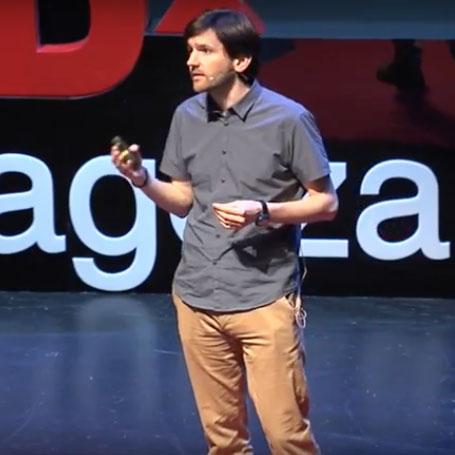
Submitted by Dr Nalin Patel on Tue, 18/04/2017 - 12:50
Winton Advanced Research Fellow, Amalio Fernández-Pacheco talked at the TEDx Zaragoza meeting on 6th April about the radical transformation in our society that has taken place in the last few decades through advances in the electronic devices that have changed the way we work and interact. The question he posed is "were we ready for this revolution, and are there negative consequences that we should identify and try to fix?"
One important drawback is the increase in power consumed by computing devices worldwide, which is the one which is motivating his research. Two of the major sources for power consumption is the need to provide continuous input of energy for memory and the energy taken to transfer data between memory and the central processing unit (CPU). His group is using nanotechnology and magnetism to investigate bits with stable memory, requiring no supply of energy and combining memory with the CPU, creating a new computing architecture.
Electron microscope is a versatile and powerful tool that is deployed in his laboratory for imaging as well as creating 3D nanoscale structures. Magnetic nanowires are manufactured with properties that can be tailored for computing applications with the potential to provide greener solutions.
Link to TEDx talk.

